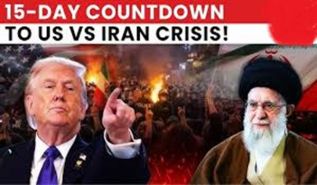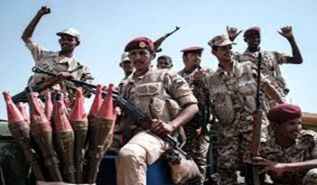بسم الله الرحمن الرحيم
After Seven Months of International Actions, Syria is Caught Between the Ambitions of Countries and the Choice of Destiny
(Translated)
Al-Rayah Newspaper - Issue 557 - 23/07/2025 CE
By Ustadh Abdo Al-Dali (Abu Al-Mundhir)*
Since December 8, 2024, Syria has witnessed various diplomatic visits at various levels. These visits cannot be described as innocent, especially after examining the history of the countries that have visited Damascus and understanding its reality.
We can say that Syria is currently experiencing a radical transformation in its international relations since Bashar al-Assad fled. This sudden event triggered this diplomatic movement, especially after a long period of political stagnation and faltering steps towards normalization. This event has confounded the region; Its outcome will either be a reshaping of the regional diplomatic map, or simply following in the footsteps of those who came before.
Numerous delegations from Arab and Western countries have flocked to Damascus, in a scene unprecedented since the outbreak of the revolution in 2011. Who are these delegations? Why have they come? What are their goals?
British Visit after Fourteen Years:
On July 5, 2025, British Foreign Secretary, David Lammy, visited the Syrian capital, his first in over a decade. During the visit, he met with Syrian Interim President Ahmad al-Sharaa and Foreign Minister Asaad al-Sheibani, and announced the allocation of approximately $129 million in humanitarian and development aid, affirming his country's support for Syria's stability and recovery. Lammy emphasized that the United Kingdom was turning a new page with Syria, noting that the support would include demining, infrastructure rehabilitation, and civil society empowerment, while emphasizing the need to hold those involved in war crimes accountable.
US easing sanctions:
On June 30, 2025, the United States issued a decision to ease economic sanctions imposed on Damascus. This step was part of a package of changes in American foreign policy toward the Middle East. American sources indicated that the decision aims to encourage the Syrian government to move forward with its democratic transition and support regional stability.
Clear Saudi support:
In February 2025, Ahmed al-Sharaa visited Saudi Arabia, where he was officially received by Bin Salman. The meeting addressed reconstruction issues and cooperation in the energy, education, and health sectors, in addition to discussing support for Gulf investments in Syrian infrastructure. The visit carried special symbolism, as it was the new Syrian president’s first foreign visit, and was seen as an indication of the growing rapprochement between Damascus and the Gulf capitals.
The international community takes action:
On January 12, Riyadh hosted an international conference attended by representatives from seventeen countries, including the United States, Britain, France, and Germany, as well as several Arab countries. The conference discussed the gradual lifting of sanctions, support for institution-building efforts in Syria, and empowerment of the transitional government.
European visits: conditional support and careful monitoring:
On January 3, 2025, the foreign ministers of France and Germany arrived in Damascus for a visit with political and humanitarian dimensions. They toured Sednaya Prison and met with opposition leaders and official figures, as part of efforts to support transitional justice, and build trust with the international community.
In March, Germany reopened its embassy in Damascus, after thirteen years of closure, and announced a €300 million aid package, dedicated to supporting infrastructure, healthcare, and education programs for returning refugees.
Return of Arab embassies:
Arab countries were not far from this movement. In May 2025, Morocco sent a technical delegation to arrange the reopening of its embassy in Damascus, in implementation of royal directives. The Algerian foreign minister also visited Damascus in February 2025, announcing his country’s full support for the transitional phase. As for Iraq, it dispatched a high-level security delegation in December 2024 to coordinate border cooperation and prevent the infiltration of extremist groups.
The above shows that the outcome achieved, despite the tremendous efforts of the popular platform and the mujahideen, was neither satisfactory nor reassuring to the countries. How could they be reassured, given that they had worked day and night to stifle and end the revolution?
They were proceeding with clear, unambiguous steps: normalization and the reproduction of the regime. The pressure exerted on the popular platform is merely an additional impetus for what was planned.
The statements of the Turkish Foreign Minister were not in vain, nor were the meetings in Saraqib and Abu al-Zandin meaningless, nor were the talks about opening the crossings from Maarat al-Nasan and Abu al-Zandin merely passing remarks. Instead, they were all real steps within a clear plan.
If what was desired was not achieved, then why these delegations? And why these visits? Wouldn’t it be more appropriate to boycott and isolate Syria completely?
The answer can be found in the statements that accompanied the battle, which spoke clearly of the need to control the movement, and prevent it from slipping into paths unacceptable to these countries.
The statements of Iraq, Jordan, and the Jewish entity, which expressed the “seriousness of the situation” and the “necessity of intervention to control it,” reveal the reason behind this diplomatic momentum, from visits to easing sanctions, and more.
If we examine the stances of the countries mentioned in the article on the revolution, we find a poor record and malicious intentions, without exception. All participated in attempts to end the revolution, planning, plotting, and striving, by every means, to prevent it from reaching a secure conclusion.
After this track record of stances and policies, it becomes clear that the delegations today do not come out of a desire for good. Instead, they are to prevent a path they do not desire. They seek to keep Syria a secular, subservient state, devoid of its own decision-making power, captive to their laws, thoughts, and solutions. They want to prevent us from liberation (tahrir), from having the power to decide, and from being dignified.
What salvation can come from those who colonialized and oppressed us? What escape can there be from the hands of those who robbed us of our freedom and undermined our popular platform and our revolution?!
Today, seven months after this movement, we cannot say that Syria has yet made its choice. The opportunity still exists, and reversing the mistake is still possible. We either choose to be decision-makers and have a say in this world, or we remain on the path of dependency, robbed of our decisions and plundered!
The opportunity will not be repeated... Strive for what is right, race toward dignity, and beware of delaying or hesitating, lest the One Who granted you liberation (tahrir) from Bashar abandon you and leave you to your own devices, leading you to the abyss while you see!
These countries are not charitable institutions, and their stances toward us do not bode well. What is happening today is not in our best interest, unless we are the decision-makers. The choice is in our hands, and the cycle is still under our control. So be careful, be very careful! Let us turn what is happening today into a gateway through which we enter the world as masters, respected, and empowered.
* Member of the Media Office of Hizb ut Tahrir in Wilayah Syria




